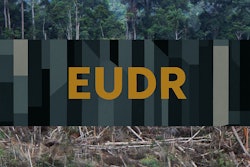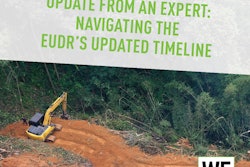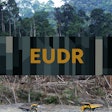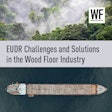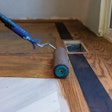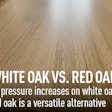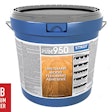So this week the EUTR regulations governing imports into Europe goes into effect. It will take some time before we see how this impacts on imports. The European Timber Trade Federation has made available the summary of the rules. More information is also available here.
I asked my go-to expert on the EU timber market, André de Boer of the ETTF: "What do importers have to do this week?" He replied:
Boer: It's a misunderstanding to think that EUTR asks for controls at the point of entry (customs). That is not the case. The EUTR has two pillars:
- A prohibition to import illegally produced timber. No proof of legality has to be shown at customs, but if there is substantiated evidence that timber is illegal, then of course authorities such as customs can seize the timber-not only at customs but at any place the timber is found.
- Operators, which includes all importers, have to exercise due diligence. This is not controlled by customs but by either a national competent authority (on a risk-based approach) or by a monitoring organization (on a regular interval). These controls are aimed at checking whether due diligence has been exercised when buying timber. It's basically a check on the correct purchasing policy and procedures of the importer. It's at the importer's office that the checks are done.
Question:Are checks scheduled regularly or are they random?
Boer: You have to make a distinction between a Competent Authority (CA) and Monitoring Organizations (MO).
A CA is a governmental organization. CA's have to check according to the EUTR on the basis of a risk-based approach. How they are going to do it is not clear and dependant on interpretation of the respective national CA's. It is likely that checks are done when risk is expected and that can be on the basis of the reputation of the company or the origin of the timber imported by the company.
A MO is an industry association like the ETTF or a private organization like FSC. MO's have to check compliance to the due diligence procedures determined by the membership system on a regular basis. In principal every member of the MO will therefore be checked at regular intervals. In the Netherlands, we consider regular checks once or twice per year, depending on the capacity that comes available. And of course checks can be done whenever this is felt necessary, e.g., on the basis of substantiated claims.
A CA might check someone that has already been checked by an MO, but participation in an MO like the ETTF will be considered part of good due diligence and means a CA would consider that operator "low risk" and not feel the need to check often.
Question: What is the burden on domestic manufacturers? How are they checked?
Boer: Domestic manufacturers are operators under the EUTR and are checked, in principle, in the same way as importers are checked.
Bear in mind that importers buying from domestic producers are not considered to be operators and do not have to follow the same due care practices outlined in the regulations.
Question: Do the checking procedures and groups differ per country or is there a Union-wide program?
Boer: It can be foreseen that there will be national differences, but the EU is going to play a harmonizing role. And the same goes for a group like the ETTF making one due diligence system available for all the member federations in all countries and the various wood industries.
Question: Do you expect some checks to start immediately as the regulations go officially into force?
Boer: Checks will start immediately if only under pressure of NGO's. But also, as said, it should be based first on the presumed level of risk.
It is likely that-apart from clear cases of illegality-that the checking authorities will be lenient in the first one or two years. Lots of questions-also for the CA's-are still unanswered. It is considered to be work in progress.















